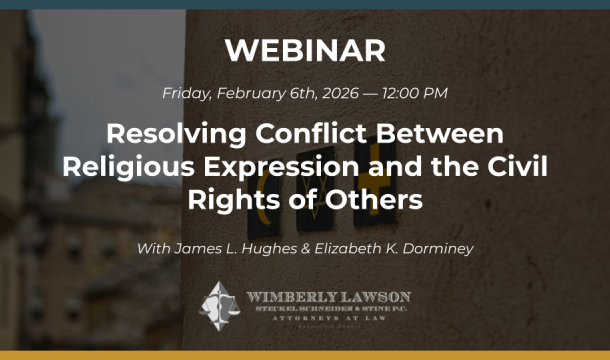The EEOC and DOJ Issue Guidance on DEI
In the Guidance from the Equal Employment Opportunity Commission (EEOC) and the Department of Justice (DOJ) released March 19, 2025, the government warned against unlawful DEI- related discrimination. Included in the Guidance is a one-page technical assistance document, “What To Do If You Experience Discrimination Related To DEI At Work.” There is a second longer question-and-answer technical assistance document, “What You Should Know About DEI-Related Discrimination At Work.” These Guidance materials do not have the force of law, but certainly outline the two important agencies’ enforcement priorities.
The Guidance lists samples of prohibited disparate treatment as including:
- “Access to or exclusion from training (including training characterized as leadership development programs);”
- “Access to mentoring, sponsorship or workplace networking/networks;”
- “Internships (including internships labeled as ‘fellowships’ or ‘summer associate programs);”
- “Selection for interviews, including placement or exclusion from a candidate ‘slate’ or pool;”
- “Job duties or work assignments.”
The Guidance goes on to explain the following:
This prohibition applies to employee activities which are employer-sponsored (including by making available company time, facilities, or premises, and other forms of official of unofficial encouragement or participation), such as employee clubs or groups. In the context of DEI programs, unlawful segregation can include limiting membership in workplace groups, such as Employee Resource Groups (ERGs), Business Resource Groups (BRGs), or other employee affinity groups, to certain protected groups.
It is emphasized that: “Title VII does not provide any diversity interest exception to these rules.” It points out also that DEI training can create a hostile work environment if “the training was discriminatory in content, application, or context.” It cites cases pointing out dangers associated with “balanced workforce initiatives,” citing explicit, specific racial goals for each grade and job level, and evaluating managers on how well they comply with such goals, as evidence that the employer considered race in making employment decisions.”
One thing clear from the Guidance is that these agencies will enforce discrimination claims in the DEI context, as such claims apparently are given special attention now by the relevant government agencies. The new Director of the Office of Federal Contract Compliance Programs (OFCCP) indicated she plans to apply the principles in Students for Fair Admissions v. Harvard, the Supreme Court ruling curtailing race-based affirmative action in higher education, to workplace discrimination. A simple explanation of the new enforcement concept is that consideration of race in decision-making in employment matters is prohibited. The enforcement concept seems to be that certain DEI plans are discriminatory “if they involve an employer or other covered entity taking an employment action motivated - in whole or in part - by an employee’s race, sex, or another protected characteristic.”
The OFCCP reportedly will even look at affirmative action plans that have been submitted to the government to look for discriminatory DEI practices therein. The mechanism being commonly used to comply with the new standards is to focus on “merit-based” employment decisions.
This article is part of our May 2025 Newsletter.
View newsletter online
Download the newsletter as a PDF
Related Content
Get Email Updates

Effect of Administration’s Abandonment of Disparate Impact in the Area of Discrimination Continues to Be Felt

Issues Arise for Employers Concerning the Overtime Tax Break

NLRB To Move Quickly as Quorum Is Restored

EEOC Issues New Guidance on National Origin Discrimination

Resolving Conflict Between Religious Expression and the Civil Rights of Others


